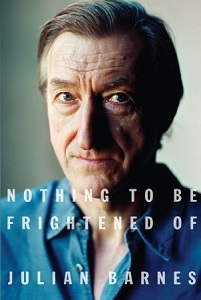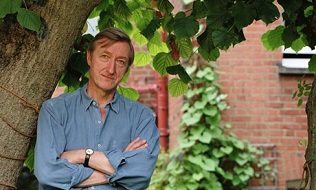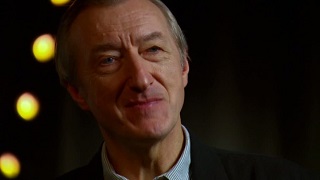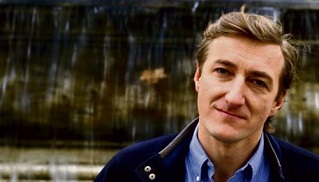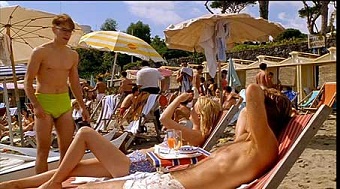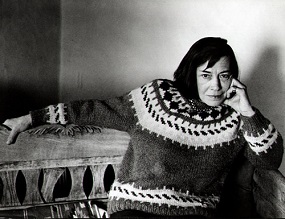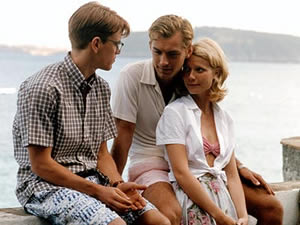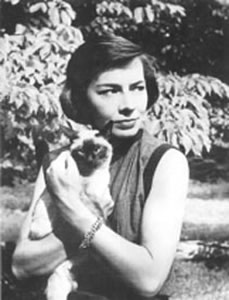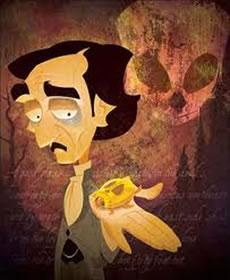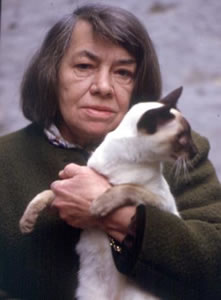De Engelse schrijver Julian Barnes werd geboren op 19 januari 1946 in Leicester. Zie ook alle tags voor Julian Barnes op dit blog.
Uit: The Noise of Time
“And so, it had all begun, very precisely, on the morning of the 28th of January 1936, in Arkhangelsk. He had been invited to perform his first piano concerto with the local orchestra under Viktor Kubatsky; the two of them had also played his new cello sonata. It had gone well. The next morning he went to the railway station to buy a copy of Pravda. He had looked at the front page briefly, then turned to the next two. It was, as he would later put it, the most memorable day of his life. And a date he chose to mark each year until his death.
Except that—as his mind obstinately argued back—nothing ever begins as precisely as that. It began in different places, and in different minds. The true starting point might have been his own fame. Or his opera. Or it might have been Stalin, who, being infallible, was therefore responsible for everything. Or it could have been caused by something as simple as the layout of an orchestra. Indeed, that might finally be the best way of looking at it: a composer first denounced and humiliated, later arrested and shot, all because of the layout of an orchestra.
If it all began elsewhere, and in the minds of others, then perhaps he could blame Shakespeare, for having written Macbeth. Or Leskov for Russifying it into Lady Macbeth of Mtsensk. No, none of that. It was, self-evidently, his own fault for having written the piece that offended. It was his opera’s fault for being such a success—at home and abroad—it had aroused the curiosity of the Kremlin. It was Stalin’s fault because he would have inspired and approved the Pravda editorial—perhaps even written it himself: there were enough grammatical errors to suggest the pen of one whose mistakes could never be corrected. It was also Stalin’s fault for imagining himself a patron and connoisseur of the arts in the first place. He was known never to miss a performance of Boris Godunov at the Bolshoi. He was almost as keen on Prince Igor and Rimsky-Korsakov’s Sadko. Why should Stalin not want to hear this acclaimed new opera, Lady Macbeth of Mtsensk?
And so, the composer was instructed to attend a performance of his own work on the 26th of January 1936. Comrade Stalin would be there; also Comrades Molotov, Mikoyan and Zhdanov. They took their places in the government box. Which had the misfortune to be situated immediately above the percussion and the brass. Sections which in Lady Macbeth of Mtsensk were not scored to behave in a modest and self-effacing fashion.
He remembered looking across from the director’s box, where he was seated, to the government box. Stalin was hidden behind a small curtain, an absent presence to whom the other distinguished comrades would sycophantically turn, knowing that they were themselves observed.”
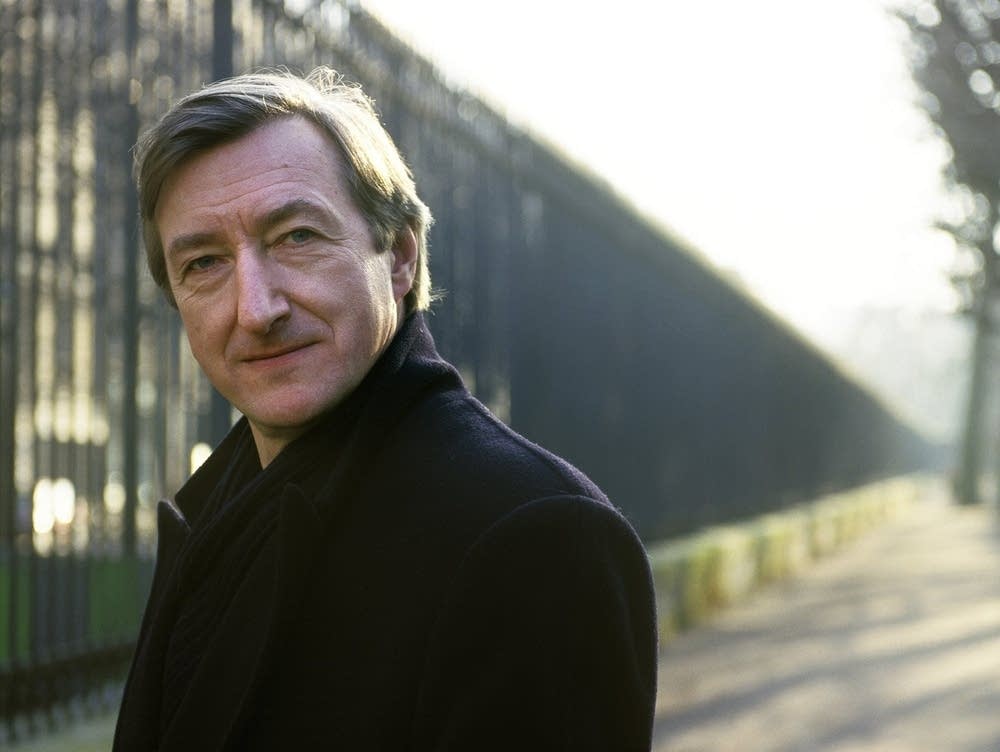
Julian Barnes (Leicester, 19 januari 1946)
De Nederlandse schrijver, uitgever en journalist Bert Natter werd geboren in Baarn op 19 januari 1968. Zie ook alle tags voor Bert Natter op dit blog.
Uit: Hoe staat het met de liefde?
“Begin opnieuw. Steek de sleutel in het slot. Open de voordeur.
Ga het halletje binnen. Vermoed niets. Hoor buiten het geronk van de bus wegsterven. Luister niet naar het gebonk binnen.
Geniet van het onverwachte vrije uur. Voel hoe lekker behaaglijk het is.
Ga verder. Sluit de deur. Stamp op de mat. Gooi die kapotte schooltas onder de kapstok. Doe die wanten uit. En die muts af. Vergeet school, vergeet de kou. Verlies nooit deze onschuld. Trek uit die dikke winterjas.
Duw tegen de deur naar de gang. Baal ervan dat die klemt. Blijf in het halletje staan.
Bedenk wie hier achter zit. Duw nog eens. Sla op de deur. Roep. Schop tegen de deur. Scheld en vloek.
Laat ook maar.
Ga zonder jas, zonder wanten en zonder muts de kou in. Trek de deur in het slot.
Kijk niet naar de overkant van het kruispunt. Weiger daarheen te gaan. Kruip daar niet weg.
Loop om door het gangetje.
Zucht diep.
Hoop dat alles goed komt.
Zie dat aan het huis niets te zien is.
Sta in de tuin. Probeer te glimlachen om de inzakkende sneeuwpop. De fietspomp in zijn hoofd. Goed idee van pap. Denk aan mooie momenten. Bewaar herinneringen. Koester alles wat gebeurde tot wat straks gebeurt.”
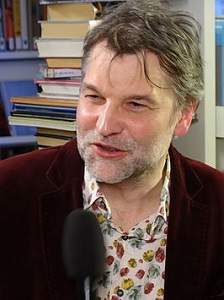
Bert Natter (Baarn, 19 januari 1968)
De Amerikaanse dichter en schrijver Edgar Allen Poe werd geboren op 19 januari 1809 in Boston. Zie ook alle tags voor Edgar Allen Poe op dit blog
Uit: The Devil in the Belfry
“Everybody knows, in a general way, that the finest place in the world is–or, alas, was–the Dutch borough of Vondervotteimittiss. Yet as it lies some distance from any of the main roads, being in a somewhat out-of-the-way situation, there are perhaps very few of my readers who have ever paid it a visit. For the benefit of those who have not, therefore, it will be only proper that I should enter into some account of it. And this is indeed the more necessary, as with the hope of enlisting public sympathy in behalf of the inhabitants, I design here to give a history of the calamitous events which have so lately occurred within its limits. No one who knows me will doubt that the duty thus self-imposed will be executed to the best of my ability, with all that rigid impartiality, all that cautious examination into facts, and diligent collation of authorities, which should ever distinguish him who aspires to the title of historian.
By the united aid of medals, manuscripts, and inscriptions, I am enabled to say, positively, that the borough of Vondervotteimittiss has existed, from its origin, in precisely the same condition which it at present preserves. Of the date of this origin, however, I grieve that I can only speak with that species of indefinite definiteness which mathematicians are, at times, forced to put up with in certain algebraic formulae. The date, I may thus say, in regard to the remoteness of its antiquity, cannot be less than any assignable quantity whatsoever.
Touching the derivation of the name Vondervotteimittiss, I confess myself, with sorrow, equally at fault. Among a multitude of opinions upon this delicate point–some acute, some learned, some sufficiently the reverse–I am able to select nothing which ought to be considered satisfactory. Perhaps the idea of Grogswigg–nearly coincident with that of Kroutaplenttey–is to be cautiously preferred.–It runs:- “Vondervotteimittis- Vonder, lege Donder- Votteimittis, quasi und Bleitziz- Bleitziz obsol:- pro Blitzen.” This derivative, to say the truth, is still countenanced by some traces of the electric fluid evident on the summit of the steeple of the House of the Town-Council. I do not choose, however, to commit myself on a theme of such importance, and must refer the reader desirous of information to the “Oratiunculae de Rebus Praeter-Veteris,” of Dundergutz. See, also, Blunderbuzzard “De Derivationibus,” pp. 27 to 5010, Folio, Gothic edit., Red and Black character, Catch-word and No Cypher; wherein consult, also, marginal notes in the autograph of Stuffundpuff, with the Sub-Commentaries of Gruntundguzzell.
Notwithstanding the obscurity which thus envelops the date of the foundation of Vondervotteimittis, and the derivation of its name, there can be no doubt, as I said before, that it has always existed as we find it at this epoch. The oldest man in the borough can remember not the slightest difference in the appearance of any portion of it; and, indeed, the very suggestion of such a possibility is considered an insult. The site of the village is in a perfectly circular valley, about a quarter of a mile in circumference, and entirely surrounded by gentle hills, over whose summit the people have never yet ventured to pass. For this they assign the very good reason that they do not believe there is anything at all on the other side.”
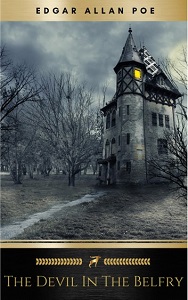
Edgar Allen Poe (19 januari 1809 – 7 oktober 1849)
Cover
De Amerikaanse dichteres en schrijfster Edwidge Danticat werd geboren in Port-au-Prince op Haïti op 19 januari 1969. Zie ook alle tags voor Edwidge Danticat op dit blog.
Boat People
We are all in a drowning boat
Happened before at St. Domingue
We are the ones called boat people
We all died long ago
What else can frighten us ?
Let them call us boat people
We fight a long time with poverty
On our islands, the sea, everywhere
We never say we are not boat people
In Africa they chased us with dogs
Chained our feet, piled us on
Who then called us boat people?
Half the cargo perished
The rest sold at Bossal Market
It’s them who call us boat people
We stamp our feet down, the earth shakes
Up to Louisiana, down to Venezuela
Who would come and call us boat people?
A bad season in our country
The hungry dog eats thorns
They didn’t call us boat people yet
We looked for jobs and freedom
And they piled us on again: Cargo—Direct to Miami
They start to call us boat people
We run from the rain at Fort Dimanche
But land in the river at the Krome Detention Center
It’s them who call us boat people
Miami heat eats away our hearts
Chicago cold explodes our stomach
Boat people boat people boat people
Except for the Indians—
What American didn’t get here somehow
But they only want to call us boat people
We don’t bring drugs in our bags
But courage and strength to work
Boat people—Yes, that’s all right, boat people
We don’t come to make trouble
We come with all respect
It’s them who call us boat people
We have no need to yell or scream
But all boat people are equal, the same
All boat people are boat people
One day we’ll stand up, put down our feet
As we did at St. Domingue
They’ll know who these boat people really are
That day, be it Christopher Columbus
Or Henry Kissinger—
They will know us
We who simply call ourselves
People
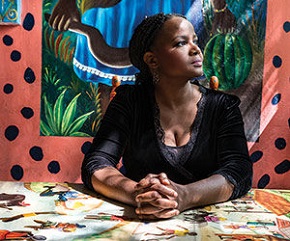
Edwidge Danticat (Port-au-Prince, 19 januari 1969)
De Amerikaanse schrijfster Patricia Highsmith werd geboren als Mary Patricia Plangman in Fort Worth (Texas) op 19 januari 1921. Zie ook alle tags voor Patricia Highsmith op dit blog.
Uit:Sauce For The Goose
“The incident in the garage was the third near-catastrophe in the Amory household, and it put a horrible thought into Loren Amory’s head: his darling wife Olivia was trying to kill herself. Loren had pulled at a plastic clothesline dangling from a high shelf in the garage — his idea had been to tidy up, to coil the clothesline properly — and at that first tug an avalanche of suitcases, an old lawnmower, and a sewing machine weighing God-knows-how-much crashed down on the spot that he barely had time to leap from. Loren walked slowly back to the house, his heart pounding at his awful discovery. He entered the kitchen and made his way to the stairs. Olivia was in bed, propped against pillows, a magazine in her lap. ‘What was that terrible noise, dear?’ Loren cleared his throat and settled his black-rimmed glasses more firmly on his nose. ‘A lot of stuff in the garage. I pulled just a little bit on a clothesline —’ He explained what had happened. She blinked calmly as if to say, ‘Well, so what? Things like that do happen.’ `Have you been up to that shelf for anything lately?’ `Why, no. Why?’ `Because — well, everything was just poised to fall, darling.’ `Are you blaming me?’ she asked in a small voice. `Blaming your carelessness, yes. I arranged those suitcases up there and I’d never have put them so they’d fall at a mere touch. And I didn’t put the sewing machine on top of the heap. Now, I’m not saying —’ ‘Blaming my carelessness,’ she repeated, affronted. He knelt quickly beside the bed. ‘Darling, let’s not hide things any more. Last week there was the carpet sweeper on the cellar stairs. And that ladder! You were going to climb it to knock down that wasps’ nest! What I’m getting at, darling, is that you want something to happen to you, whether you realize it or not. You’ve got to be more careful, Olivia — Oh, darling, please don’t cry. I’m trying to help you. I’m not criticizing.’ ‘I know, Loren. You’re good. But my life — it doesn’t seem worth living any more, I suppose. I don’t mean I’m trying to end my life, but —’ ‘You’re still thinking — of Stephen?’ Loren hated the name and hated saying it. She took her hands down from her pinkened eyes. ‘You made me promise you not to think of him, so I haven’t. I swear it, Loren.’ ‘Good, darling. That’s my little girl.’ He took her hands in his. ‘What do you say to a cruise soon? Maybe in February? Myers is coming back from the coast and he can take over for me for a couple of weeks.”
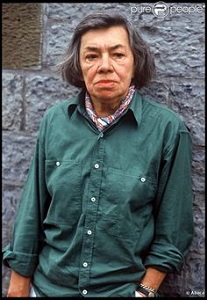
Patricia Highsmith (19 januari 1921 – 4 februari 1995)
Zie voor nog meer schrijvers van de 19e januari ook mijn vorige blog van vandaag.

